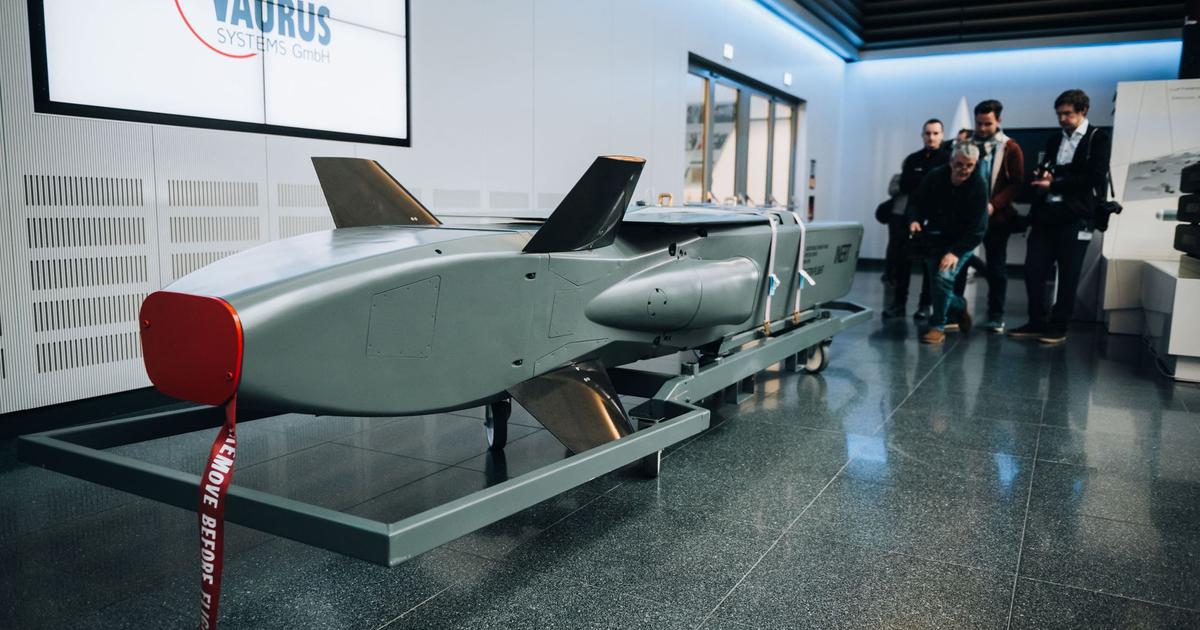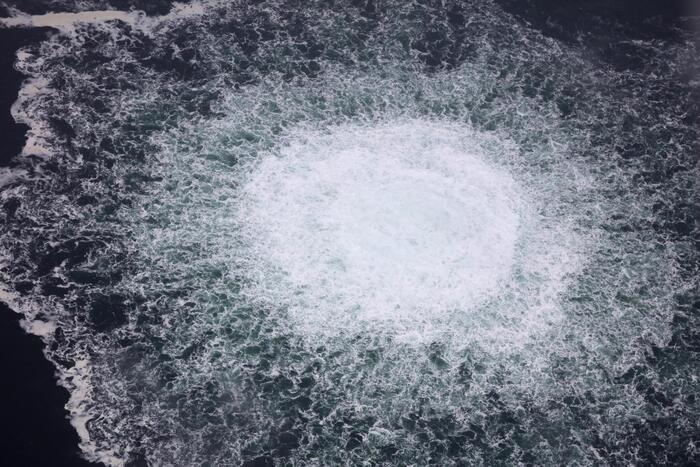Workers on the Nord Stream 2 gas pipeline in an image taken on a pipeline in 2019 near the Russian town of Kingisepp. Anton Vaganov (Reuters)
The crisis between Russia and the West in the face of a possible invasion by Kremlin forces in neighboring Ukraine materializes in a gas pipeline that is much more than an energy infrastructure. The Nord Stream 2 (NS2), a project controlled by Gazprom to transport gas directly from Russia to Germany through the Baltic seabed without going through Ukraine, has slipped into the center of the discussions about the possible sanctions that the United States and its allies could impose on Moscow if, as Washington fears, the attack occurs. Berlin, reluctant until now to threaten Russia directly with the viability of the gas pipeline, is willing to put its stoppage on the table.
If Russian troops cross the border into Ukraine, it will be very difficult for German Chancellor Olaf Scholz to go ahead with a project the United States has vehemently opposed for years. The decision also comes in the midst of an energy crisis and when the Russian giant is apparently rationing gas supplies to the EU. The NS2, already built but whose certification is stalled for not complying with European regulatory procedures, doubles the capacity of its predecessor and avoids passing through Ukraine, a traditional gas transit country. With him, Kiev not only loses income; it also makes him more vulnerable against Moscow.
The crisis has turned the gas pipeline into a weapon, a tool with which to put pressure on Putin.
Scholz sent this Tuesday the clearest signal that has been heard from him since he arrived at the Foreign Ministry.
During a visit by NATO Secretary General Jens Stoltenberg, and when asked by journalists about the gas pipeline, he said that in case of military intervention "it is clear that a high price will be paid and that everything is up for discussion."
This position is in line with that of Los Verdes, with which it governs in a tripartite manner, and who have always criticized the project.
Also Josep Borrell, the head of European diplomacy, has linked the future of infrastructure to what he does with Putin in Ukraine.
More information
What is happening between Russia and Ukraine?
The key dates of the conflict
Gas is, however, a double-edged sword. In the same way that Germany can put pressure on Russia by not buying gas through NS2, Moscow could further reduce exports through other channels, such as the Yamal gas pipeline, in the middle of winter, with deposits at the lowest level in recent years. and in the midst of a price crisis. Europe is beginning to speculate whether it could stop relying on Russian gas. Moscow is now its main supplier. And Germany, about to shut down its last nuclear power plants and forced to burn less coal to cut CO2 emissions, is especially dependent. It needs gas as a transition energy while it improves the capacity of renewables.
Washington is determined to use NS2 as a pressure lever. “Right now there is no gas flowing, which means that the pipeline is an advantage for Germany, the United States and our allies, not for Russia,” Secretary of State Antony Blinken stressed in Berlin on Thursday. In mid-November, when tensions over troop movements had already begun and in the midst of a border crisis between the EU and Belarus, an ally of Moscow, the German regulator temporarily suspended the certification process. The owner company had to create a German subsidiary to operate in Europe according to community law.
Germany is taking its time. The federal network agency announced in December that it would not make a decision in the first half of the year. If it were given the green light, the ball would fall on the roof of the European Commission, which could take several more weeks to review the project.
For now, the Kremlin is waiting to openly criticize the delay in certification.
When the stoppage was announced, Moscow pointed out that there were no reasons to think that there were more than technical reasons behind it.
Now, the Russian government is beginning to slip that there may also be political reasons.
"We draw the attention of our German colleagues to the counterproductiveness of the attempts to politicize this project," Russian Foreign Minister Sergei Lavrov stressed this week, together with his German counterpart, with whom he spoke in Moscow about the controversial gas pipeline. .
The Kremlin insists that Nord Stream 2 will benefit European consumers.
In December, at the peak of price rises, Russian President Vladimir Putin's words that Gazprom would be willing to increase supply caused prices to fall rapidly in overheated markets.
Putin has repeated over and over again that the commissioning of Nord Stream 2 would lead to lower gas prices in Europe.
On Wednesday, Kremlin spokesman Dmitri Peskov stressed that the delay hurts not only project participants but also consumers.
Energy as a tentacle of Moscow's power
For decades, Russia has used energy and supply deals as a tool to maintain some influence over its satellite countries and others that rely heavily on its gas, such as some in the EU. Last September, for example, when the current energy crisis was already brewing, it renewed the contract with Belarus for this year at a price of 128.5 dollars per 1,000 cubic meters. Shortly after, the Serbian president, Aleksandar Vucic, visited Moscow and, after a meeting with Vladimir Putin, returned home with another advantageous agreement, compared to other countries: 238 euros per 1000 cubic meters. An invoice that contrasts completely with that of Moldova and its new pro-European government,that he had to declare a state of emergency when the contract he had had expired and he was unable to pay the new price that the Russian gas company was asking for.
After weeks of negotiations, the Moldovan executive reached an agreement for 400 euros per 1,000 cubic meters over five years, much higher than the 170 euros of the previous contract.
In Chisinau and Brussels they saw the gas chapter as the movement of one of Moscow's most powerful tentacles, which was trying to gain a foothold in the country after the 48-year-old Europeanist technocrat Maia Sandu, a 48-year-old former World Bank official, snatched Kremlin ally Igor Dodon won the presidency last year and his party, Action and Solidarity, swept the parliamentary elections last July.
Moscow assures that it is not cutting gas supplies in the European Union.
And with the figures in hand, it is not breaching its agreements, but it is not adding more supply to a market that needs it.
Russia prefers long-term agreements.
"Speculations about Nord Stream 2 are due to the fact that the West believes that this is a very sensitive project for Russia in economic terms and a powerful lever of pressure on Moscow," analyzes Sergei Fedorov, of the Institute of Europe of the Russian Academy of Sciences. Sciences, which highlights that the Russian economy and the energy sector will resist any decision on the gas pipeline.
"When the construction of the project began, it was not politicized and foreign companies played an important role in its implementation, but later it has been seen that it is tied to politics and that factor has grown," he adds.
Follow all the international information on
and
, or in
our weekly newsletter
.

/cloudfront-eu-central-1.images.arcpublishing.com/prisa/K5O7TE6NXBEFZPN5BRPUBLAYWA.jpg)



